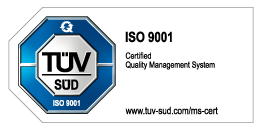Class 050 Steam Freight Locomotive with a Cabin Tender
Prototype: German Federal Railroad (DB) class 050 steam freight locomotive with a cabin tender. Witte smoke deflectors, 4 boiler domes, shortened running boards, DB Reflex glass lamps, and inductive magnets. Locomotive road number 050 045-4. The locomotive looks as it did around 1970.
Most Important Facts
Sound demo| Article No. | 22786 |
|---|---|
| Gauge / Design type | Trix H0 / |
| Era | IV |
| Kind | Steam Locomotives |
Check with your local dealer Find Dealer
Highlights
- Cab lighting digitally controlled.
- Lighting in the tender cabin digitally controlled.
- Figures of a locomotive engineer and a fireman included.
- Train conductor in the tender cabin.
- Especially finely detailed metal construction.
- Partially open bar frame and many separately applied details.
- High-efficiency propulsion with a flywheel, mounted in the boiler.
- Digital decoder and extensive operational and sound functions included.
-
Product description
Model: The locomotive has a digital decoder and extensive sound functions. It also has controlled high-efficiency propulsion with a flywheel, mounted in the boiler. 5 axles powered. Traction tires. The locomotive and tender are constructed mostly of metal. A 7226 smoke unit can be installed in the locomotive. The triple headlights change over with the direction of travel. They and the smoke unit that can be installed in the locomotive will work in conventional operation and can be controlled digitally. The cab lighting and the cabin lighting in the tender cabin can be controlled separately in digital operation. Maintenance-free warm white LEDs are used for the lighting. There is a figure in the tender cabin of a train conductor, installed at the factory. There is a close coupling with a guide mechanism between the locomotive and tender. The rear of the tender and the front of the locomotive have close couplers with NEM pockets and guide mechanisms. The minimum radius for operation is 360 mm / 14-3/16". Figures of a locomotive engineer and a fireman as well as protective piston sleeves and brake hoses are included.
Length over the buffers 26.5 cm / 10-7/16".Freight cars to go with this locomotive can be found in the current Märklin H0 assortment, with references about the wheel set exchange to DC wheel sets.
This model can be found in an AC version in the Märklin H0 assortment under item number 37836.
Spare parts for our articles can be found here in our spare parts search.
One-time series.
-
Publications
- New items brochure 2017 - Main Catalog 2017/2018
-
Prototype information
Class 50 Steam Freight Locomotive The class 50 locomotive came into being shortly before the start of World War II as the last of the so-called "standard design steam locomotives". From April to July of 1939 Henschel built the first twelve locomotives which were soon destined to become the German State Railroad's most successful design, because this 2-10-0 locomotive with its approximately 1,600 horsepower and 80 km/h / 50 mph speed quickly became a general-purpose, sturdy, reliable unit. The outbreak of war on September 1, 1939 caused a leap in the demand for freight locomotives, and the twelve pre-production locomotives were followed by another 3,152 units over the course of the next few years. After the end of the war the DB had more than 2,000 units, which were gradually equipped with the small Witte smoke deflectors in place of the large Wagner units, and which mostly lost the running board skirting. The so-called freight train baggage cars were not available in sufficient quantities and caused a big problem on freight trains in the Fifties. Finally, the idea came about of installing a cabin on the tenders of 751 of the class 50 units for the train crews. Two large windows ensured a good view to the rear of the train and inside the cabins, there was still room for large work surfaces with table lamps, upholstered folding seats, two emergency seats, a folding washbasin, a ceiling light, two shelves, steam heating, hot plates for heating meals, a water container, and clothing hooks. The class 50 units with or without cabin tenders remained "the" all-round steam locomotives for freight and passenger trains on main and branch lines right up to the end of the steam locomotive era in 1977.
-
Digital Functions
DCC SX2 SX MFX Headlight(s) Smoke generator contact Steam locomotive op. sounds Locomotive whistle Direct control Sound of squealing brakes off Light in compartment Bell Engineer’s cab lighting Whistle for switching maneuver Air pump / compressor Letting off Steam Sound of coal being shoveled Grate Shaken Water Pump Switching maneuver Injectors Replenishing fuel Replenishing fuel Sanding Cab chatter






